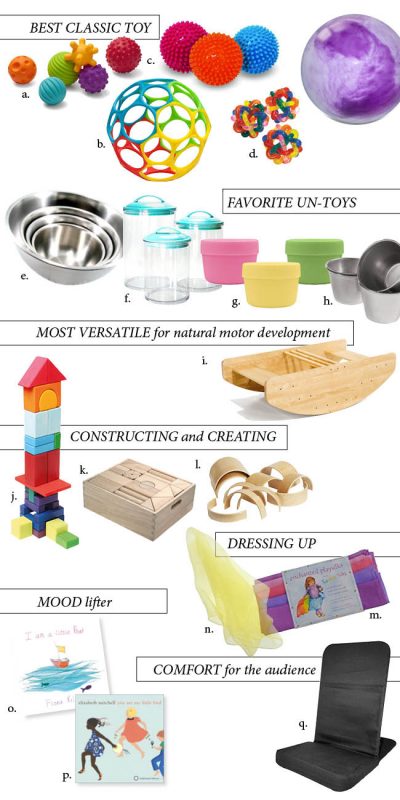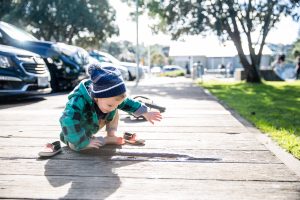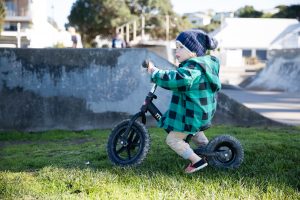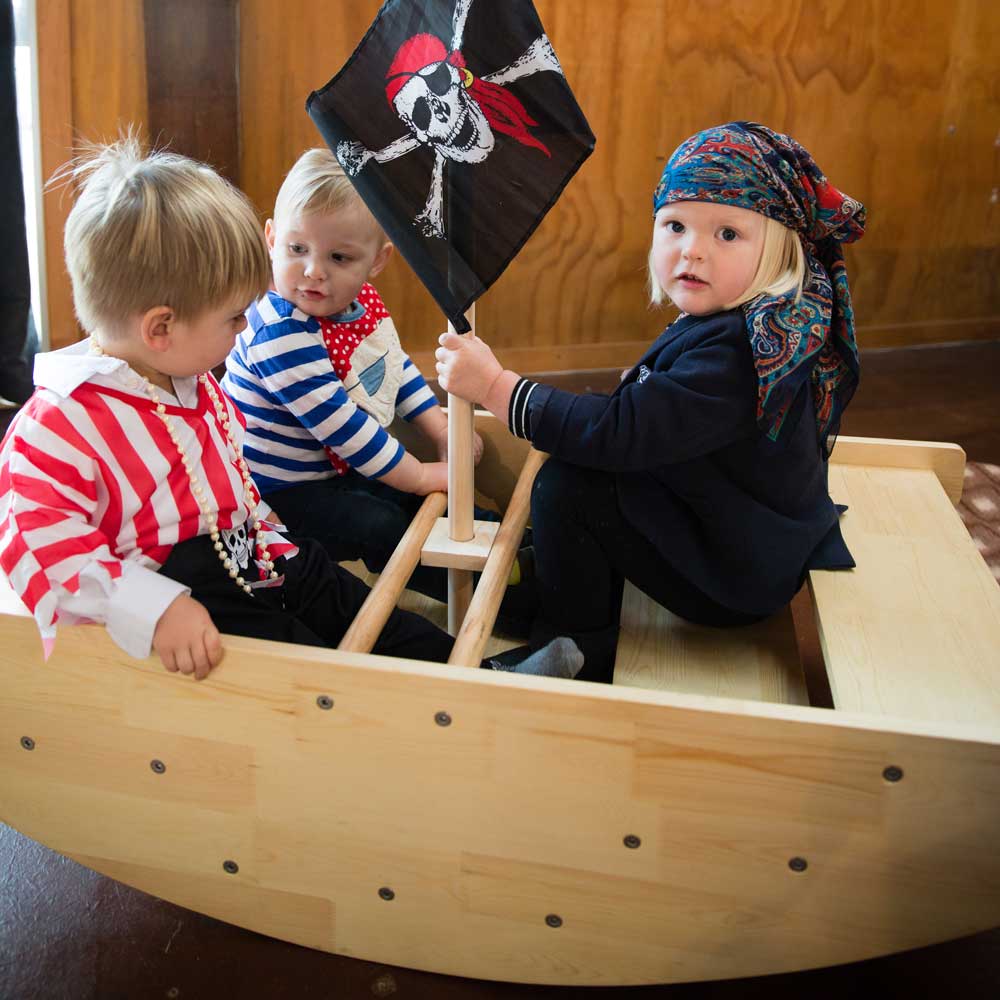We were inspired into open-ended play by the expertise and child care philosophy of Janet Lansbury, who has authored two great books and has many thousands of followers on her RIE inspired blog. She states a Rocking Boat Step Climber as the most versatile toy for natural motor development skills.
Janet Lansbury learnt much of her Respectful Parenting childcare expertise from the founder of RIE, Magda Gerber (RIE is pronounced “Wry” and stands for Resources for Infant Educators). We have found some immensely valuable inspiration and education for raising confident children in today’s society from these experts – within the often overwhelming amount of information out there for parents / caregivers these days. We are so grateful for the experiences this knowledge has given us with our own children, and can’t wait to pass it on to you through our play products!
The extract below from Janet Lansbury’s Article discusses the benefits of child-directed play and names the Rocking Boat Step Climber as the most versatile toy for natural motor development skills.
7 Gifts That Encourage Child-Directed Play:

“In case you haven’t noticed, play is hot. Once taken for granted as a universal childhood right, in the last decades aggressive marketers of early learning products and a focus on standardized testing have horned in on this valuable developmental time in a child’s life.But lately it seems our collective appreciation for child-directed play has never been stronger, and there could be no better news for our children…or for us. The physical, cognitive, creative and psychological benefits of child-directed play are well-documented. Less acknowledged, though, is a secret that really shouldn’t be one: quietly observing our children playing is a magical experience for parents.
Learning to be a responsive play observer takes thoughtfulness, restraint and practice, but once we get this down, we’ll discover more delightful moments of joy, humor and surprise than we ever thought possible. And we need these daily parenting “bonuses” to balance the more difficult moments and break up the monotony. We’ll also get more guilt-free breaks from parenting because we’ve encouraged our children to hone their independent play skills in our presence (but that’s another post).
Essentials for nurturing child-directed play are safe, enclosed spaces and open-ended objects, equipment and toys that encourage creativity, discovery and extensive exploration.
The Step Climber: Most versatile toy for natural motor development
Infants practice climbing and descending the steps, first by crawling up and then descending either face-first or backwards (trust and spot them). Later they might descend seated on their bottoms and then, finally, they learn to step, which tends to be immediately followed by stepping down while holding the biggest toys they can find. Kids love challenging themselves.
I especially appreciate the way the rocking boat helps toddlers and preschoolers develop social intelligence as they experiment with it in conjunction with their peers. They learn to slow down their rocking to accommodate children climbing on or off, and they practice balancing together. We should be nearby with younger ones to spot, support and prevent toes from getting caught underneath, but we’re definitely not needed to rock the boat. Children learn more and are safer when they can control it. Some of the most joyful moments of togetherness in our parent, infant and toddler classes happen when children discover rocking with a peer. (Photographed at Resources for Infant Educarers)”
This step climber, which turns over to become a rocking boat, is the most pricey item on my list, but if you have a young infant (who will use this piece until age 3, at least) or can share this climber between a group of parents, it’s well worth the expense.
Janets’s full article is available at: http://www.janetlansbury.com/2013/11/6-gifts-that-encourage-child-directed-play






